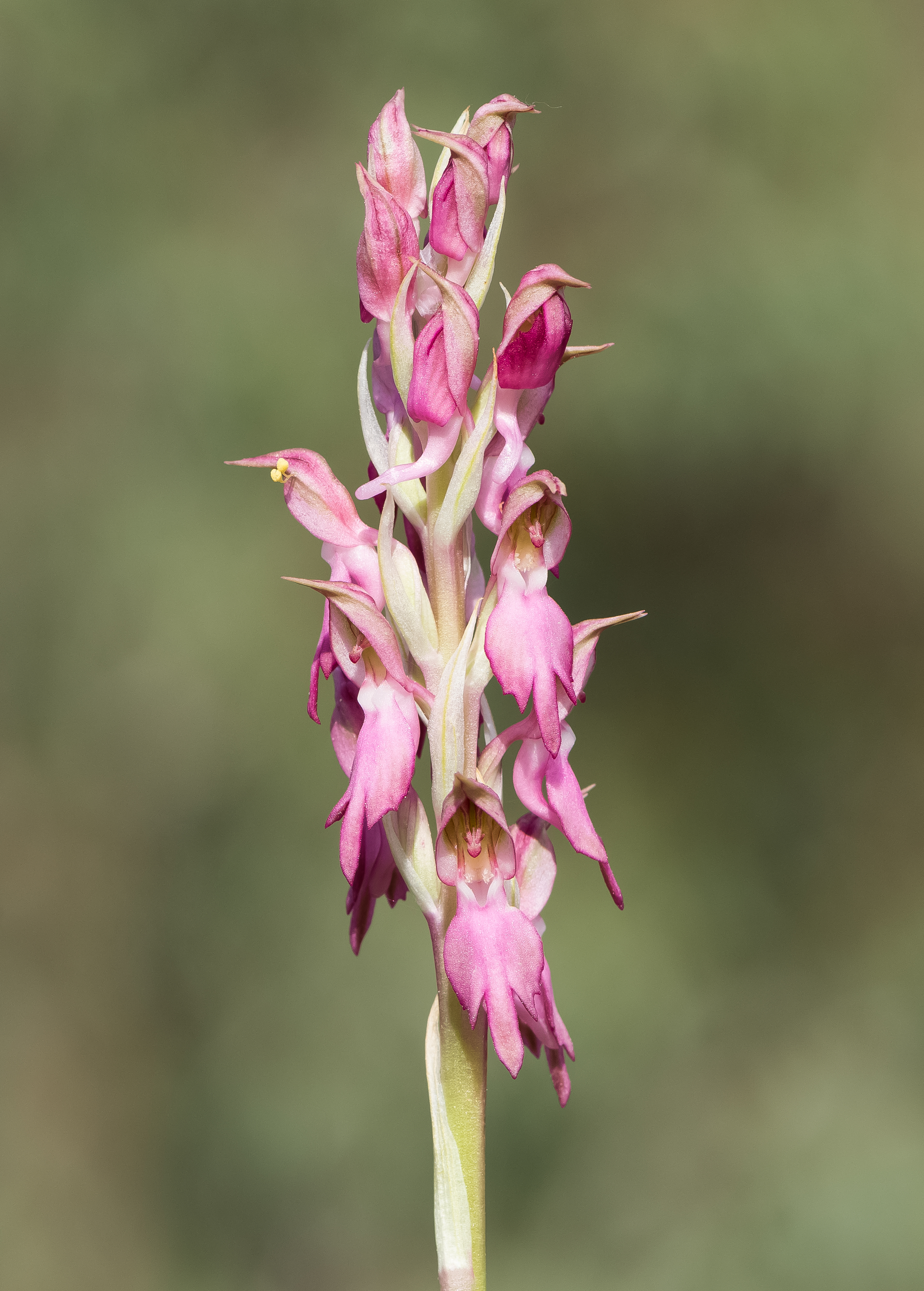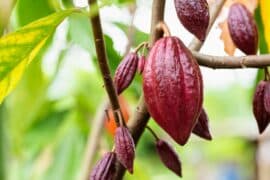Holy orchid
(Anacamptis sancta)

Description
Anacamptis sancta, also called the Holy orchid, is a species of orchid closely related to Anacamptis coriophora that is found in the eastern Mediterranean. The species flowers look similar to A. coriophora but are bigger and more variable in color, from pink to red. The lips of its flowers are unspotted, and most of the leaves are withered by the time the plant flowers. The species is very local or rare and is found in Turkey, Cyprus, Lebanon, Israel and Aegean Islands, and favors dry and stony ground. Anacamptis is a genus of flowering plants in the orchid family (Orchidaceae); it is often abbreviated as Ant in horticulture. This genus was established by Louis Claude Richard in 1817; the type species is the pyramidal orchid (A. pyramidalis) and it nowadays contains about one-third of the species placed in the "wastebin genus" Orchis before this was split up at the end of the 20th century, among them many that are of hybrid origin. The genus' scientific name is derived from the Greek word anakamptein, meaning "to bend backwards". These terrestrial orchids occur on grasslands, limestone or chalk deposits, or on dunes in Eurasia, from the Mediterranean region to Central Asia. Except the pyramidal orchid (A. pyramidalis), all species of Anacamptis seem to form a clade around the green-veined orchid (A. morio). They have a diploid chromosome number of 32 or 36. A useful character for distinguishing Anacamptis from Orchis – where the green-veined orchid clade was formerly included – is the basal fusion of the three sepals in Anacamptis. The few bigeneric hybrids are typically between closely related genera, in particular Serapias. Hybrids between the pyramidal orchid and the early purple orchid (Orchis mascula), found in Cumbria (UK) in 1997, proved short-lived because of the highly divergent genomic lineages of the parents.
Taxonomic tree:







